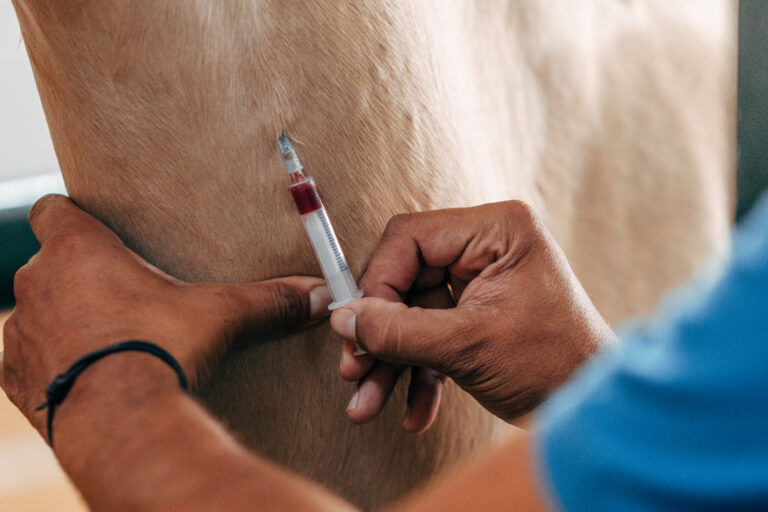
Resistance by gastrointestinal nematodes to conventional dewormers sparked an Australian study to evaluate the efficacy of using nematophagous fungi as a non-chemical deworming strategy [Healey, K.; Lawlor, C.; Know, M.R.; et al. Field evaluation of Duddingtonia flagrans IAH 1297 for the reduction of worm burden in grazing animals: Pasture larval studies in horses, cattle and goats. Veterinary Parasitology June 2018, https://doi.org/10.1016/j.vetpar.2018.06.017].
The fungal spores used in this study, Duddingtonia flagrans, are included in a supplement (BIoWorma—which is commercially available in Australia). These were added to horse feed to pass in entirety through the horse’s GI tract into the feces. There, the fungi germinate with their hyphae network forming throughout the manure to inhibit development of the free-living stage of nematode larvae.
Treatment trials lasted eight weeks. Horses receiving the treatment of predatory fungi had a significant reduction in fecal egg counts—cyathostomins, Strongylus spp., and Trichostrongylus spp. Worm larvae on pasture was reduced by 84% on average compared to controls.
These improvements were also observed six weeks after treatment was stopped.
Reduction in larval numbers in pasture is critical to reducing exposure of horses to emerging infective larval stages.
Fungal dewormers present a potentially effective method to handle gastrointestinal nematodes, especially in light of the fact that no new chemical deworming drugs are in development and resistance is steadily ramping up to currently available chemical dewormers.








